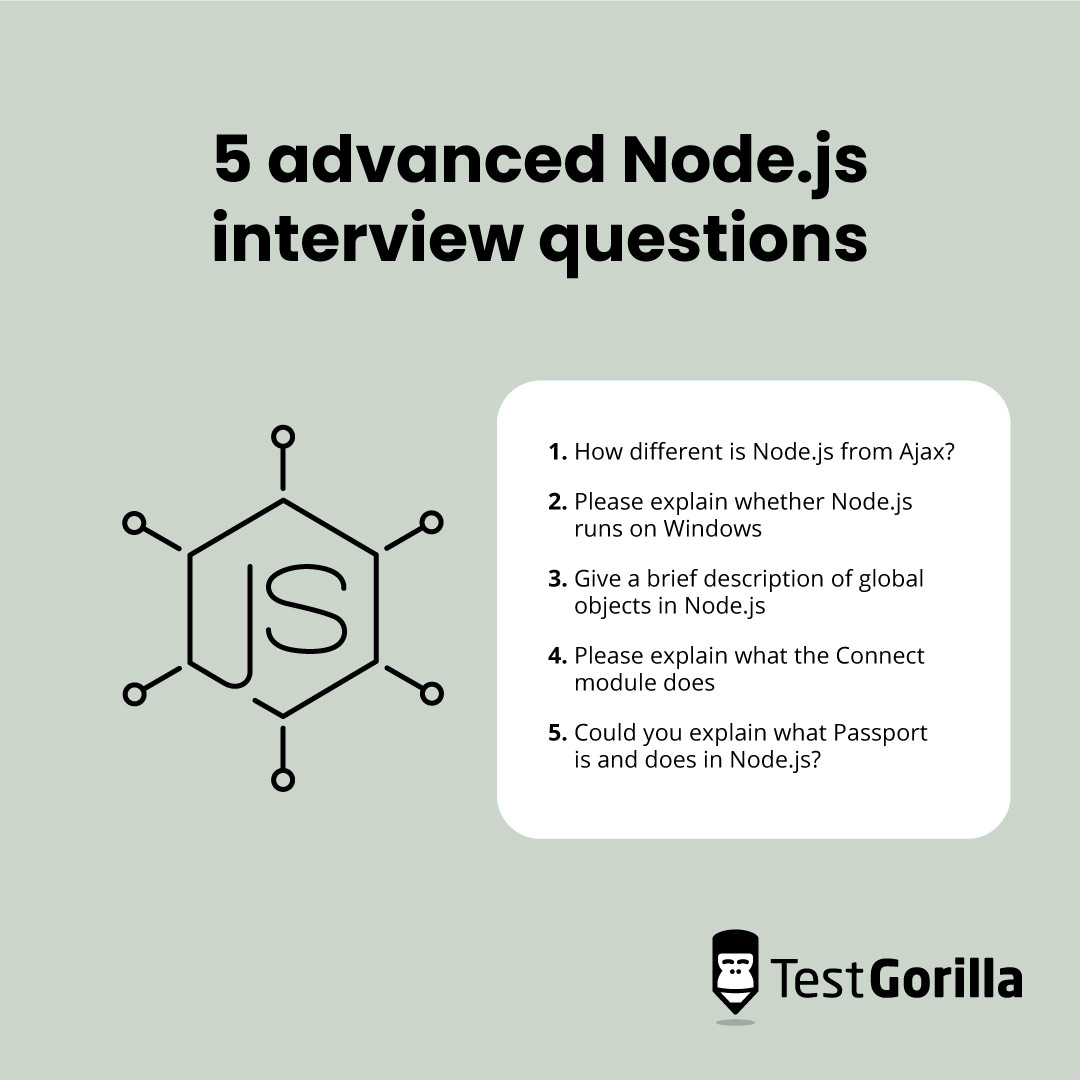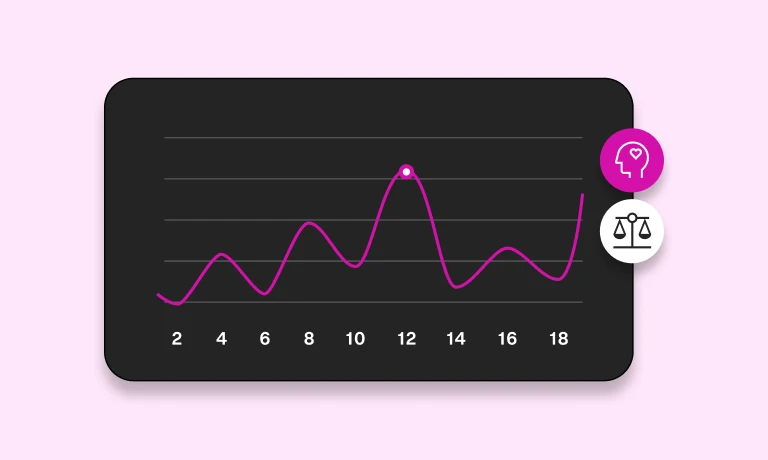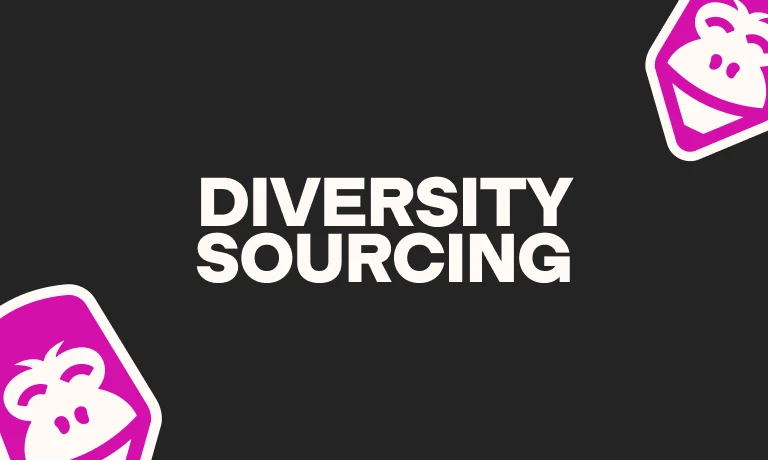100 Node.js interview questions to ask programmers
If you’ve been searching for a Node.js developer, you may know that there are many skills to assess when hiring an applicant.
Evaluating technical and soft skills is critical to ensure the applicant is the right person for the job. You may also want to assess your candidates’ personalities and values to ensure they are a good match for the team.
The best approach to applicant evaluation is to combine skills assessments that include a Node.js test with interviews in which you ask candidates Node.js interview questions.
Finding the ideal list of questions is difficult, but we’ve made this step easier. Check out this article’s 100 Node.js interview questions to hire a professional Node.js programmer for your business.
Table of contents
- 24 beginner Node.js interview questions to ask candidates
- 5 beginner Node.js interview questions with sample answers
- 14 intermediate Node.js interview questions to ask candidates
- 5 intermediate Node.js interview questions with sample answers
- 50 advanced Node.js interview questions to ask your candidates
- 5 advanced Node.js interview questions with sample answers
- 12 Node.js interview questions about skills
- 5 Node.js interview questions about skills with sample answers
- When should you use Node.js interview questions in the hiring process?
- Hire developers and review their knowledge with Node.js interview questions
24 beginner Node.js interview questions to ask candidates
Ask your junior applicants some of these 24 beginner Node.js interview questions to test their knowledge and abilities.
Please explain what Node.js is and how you can use it.
Please tell us about your Node.js experience.
Explain why you chose to apply for this vacancy.
How many years of experience do you have with Node.js?
What do you know about RESTful APIs?
Why are soft skills important when using Node.js?
Could you name three advantages of Node.js?
Do you have a qualification that supports your application for this Node.js role?
Can you explain how Node.js works?
Is Node.js single-threaded? Can you explain why or why not?
How does Node.js handle concurrency despite being single-threaded?
What is the callback function in Node.js?
Please explain if using promises is better than using callbacks.
Could you explain what I/O means?
Name the main types of applications developers make with Node.js.
Do developers use Node.js for front-end or back-end development?
Please tell us what NPM means and explain its main functionalities.
Do you understand what modules are in Node.js? Please explain what they do.
Is Node.js better than Java? Explain your answer.
Are there any differences between Node.js and Angular? Please give examples.
Could you name one database that developers frequently use with Node.js?
Could you name some libraries that developers frequently use with Node.js?
Please name some disadvantages of Node.js.
How do developers import external libraries to Node.js? Name the command they use.
5 beginner Node.js interview questions with sample answers
Here are five sample answers to some of the most important beginner Node.js interview questions. Check these answers when reviewing your applicants’ responses.
1. Why are soft skills important when using Node.js?
Since Node.js developers must work with many clients, they require several key soft skills. Some of the top soft skills included in job postings for software developers are communication, teamwork, problem-solving, and planning.
These fundamental soft skills can help developers build trust with clients and enhance the business-client relationship.
The importance of soft skills for Node.js developers doesn’t end there, however – they also have to work with a development team and non-technical stakeholders to deliver high-quality software applications.
2. Could you name three advantages of Node.js?
Node.js has several critical advantages, which may explain why 47.1% of developers selected it as their preferred framework in 2022. It not only helps engineers build scalable network software and programs but also has the following qualities:
Fast runtime environment
Asynchronous features
Ensures developers don’t have to wait for non-JavaScript operations to end before executing JavaScript operations
Easy to learn
Uses caching to reduce loading time
Requires only JavaScript to handle both front-end and back-end development
Support from a large community of Node.js developers
Asking additional questions about how your candidate has benefited from these advantages will help you learn about their experience, so don’t forget to inquire about their successful Node.js projects.
3. Could you name some libraries that developers frequently use with Node.js?
There are a few libraries that developers frequently use with Node.js, so look for a candidate who can name a couple and explain what they are.
Below are descriptions of two libraries Node.js developers often use:
Express.js: This flexible web application framework for Node.js offers several features that support mobile and web application development
Mongoose: This web application framework for Node.js enables developers to connect their applications to a database
Parser, Ethers.js, and Request are a few other examples of libraries that developers use with Node.js. Candidates who can talk about these features are worth considering for your organization.
4. Are there any differences between Node.js and Angular? Please give some examples.
Candidates should know that there are several differences between Node.js and Angular. To prove their expertise, they can mention the following examples in their answer:
Node.js is a runtime environment that enables developers to execute JavaScript code on the server side, whereas Angular is a development framework for client-side applications
Node.js is typically used for back-end development, whereas Angular is used for front-end development
Node.js is written in C and C++ programming languages, and Angular is written in TypeScript
Node.js is ideal for building scalable, server-side networking applications, and Angular is best for single-page, client-side applications
Candidates who also mention that Node.js can be used to generate database queries may have the knowledge required to join your development team.
5. Do you understand what modules are in Node.js? Please explain what they do.
Even junior Node.js engineers should understand what modules are in Node.js. Look for some of the following details in their responses:
Node.js modules are similar to JavaScript libraries
Developers can include them in a Node.js application if they want to use specific functions
Programmers should use the require() function and add the module’s name in the parentheses to include modules in the application
Top applicants will understand that there are many modules in Node.js, including HTTP, query string, URL, and stream types. They will also be able to explain what these modules do and how they work. For example, the stream module handles streaming data, and the HTTP module helps developers make a Node.js HTTP server.
The best insights on HR and recruitment, delivered to your inbox.
Biweekly updates. No spam. Unsubscribe any time.
14 intermediate Node.js interview questions to ask candidates
Ask your mid-level applicants some of these 14 intermediate Node.js interview questions during an interview to test their expertise and experience.
What do you understand about event-driven programming?
Do you know what event loops are in Node.js?
Please explain what nextTick() does in Node.js.
Please explain what setImmediate() does in Node.js.
Do you understand what EventEmitter is in Node.js?
How many API functions exist in Node.js? Could you name two?
What do you understand about the package.json file?
What is your method for using URL modules in Node.js?
Do you understand what the Express.js package is? Can you give us a definition?
Please explain how you would make a basic Express.js application.
Please explain what Node.js streams are.
How many types of streams exist in Node.js?
Which Node.js skill do you need to improve? Explain how you would get better.
Please tell us how you would update and delete dependencies.
5 intermediate Node.js interview questions with sample answers
Here are five sample answers to important intermediate Node.js interview questions. Refer to these answers to evaluate the depth of your candidates‘ responses.
1. Which Node.js skill do you need to improve? Explain how you would get better.
A developer who wants to improve their skills is a great match for your organization, so consider if your candidates aim to grow. Some might want to work on their database management skills, whereas others might intend to focus on increasing their Express.js knowledge.
How they aim to improve is just as important as wanting to improve. Find out how they learn best, whether they prefer growing their skills by completing new projects or through training.
Even though many HR professionals consider hiring developers to be a difficult process, there’s an easy way to achieve this goal. Use skills tests like our Database Management and Administration test to evaluate applicants’ knowledge.
2. What do you understand about event-driven programming?
Event-driven programming involves using events to trigger various functions. Look out for applicants who can give a few examples of events, such as the click of a mouse or the pressing of a key on the keyboard.
Candidates should mention that developers link a function to an event. The system then executes the function when the user triggers the event.
3. What do you understand about the package.json file?
Mid-level developers with Node.js experience should know that the package.json file contains metadata for a specific project. They’ll be able to explain that this file is in the Node.js application or module’s root directory.
Ideal responses will also specify what the metadata contains, including the project’s version, name, and dependency details. Look out for answers that mention that the file gives information to the NPM package manager to identify the project.
4. Please explain what Node.js streams are.
A stream is an object in Node.js that developers often use to read or write data continuously. However, they also have other functions.
Candidates should know that streams can help developers accomplish a variety of tasks, like handling network communications and easily managing end-to-end information exchanges. They are instances of the EventEmitter class, which holds every object capable of emitting events.
5. How many types of streams exist in Node.js?
Applicants familiar with streams will know that there are four main stream types:
Readable streams are used for reading data from a specified source
Writable streams are used for writing data to a specified source
Duplex streams are used for both reading and writing operations
Transform streams are a type of duplex stream used when the system computes an output in relation to an input
50 advanced Node.js interview questions to ask your candidates
Ask senior candidates some of these 50 advanced Node.js interview questions in an interview to test their proficiency and abilities.
Could you tell us what REPL means and what it represents?
Please explain how the control flow function works.
Could you explain what the fork() method is?
Please tell us what the spawn() method is.
Can you explain how fork() and spawn() are different?
What do you understand about the Buffer class?
Please explain what piping refers to in Node.js.
Do you understand what callback hell means? Please provide a definition.
Can you explain what reactor patterns are in Node.js?
What do you understand about test pyramids in Node.js?
Do you know what exit codes do in Node.js?
Could you tell us what middleware is?
Can you name a few examples of HTTP requests?
Do you have a method to connect Node.js to a MongoDB database?
What do you understand about node_env?
Please tell us about Node.js’s main timing features.
Do you understand what WASI is? Can you explain why it’s important?
What do you know about first-class functions in JavaScript?
Do you have a method to manage packages in a Node.js project?
What do module exports do in Node.js?
Are there any tools you use to ensure the code style is consistent?
In which order does the event loop execute control flow statements?
Why would you use event-based models in Node.js?
How different is Node.js from Ajax?
Please explain whether Node.js runs on Windows.
Is it possible for developers to access the DOM in Node.js? Explain why or why not.
Why do you think some Java programmers favor Node.js?
Can you explain what non-blocking means in Node.js?
Is it important to separate the server and Express app? Explain why or why not.
What do you understand by stubs in Node.js?
What is the most popular framework that developers use with Node.js?
Name two security implementations that exist in Node.js.
Do you know what libuv is? Can you explain what it does in Node.js?
Give a brief description of global objects in Node.js.
In which situation should developers use assert in Node.js?
Please explain what the Connect module does.
What do you understand about LTS releases in Node.js?
Does Node.js have a method for handling child threads? Explain your answer.
Can developers use clustering to enhance Node.js’s performance? Explain how.
Please explain what a thread pool is.
Is there a difference between worker threads and clusters? Explain your answer.
Do you have an approach for measuring the duration of an async operation?
What do you understand about tracing in Node.js?
Please tell us whether Node.js supports cryptography.
Can you explain whether Node.js features a debugging tool?
Could you explain what Punycode is in the context of Node.js?
Can you tell us how Node.js’s DNS lookup function works?
Please explain what the fs.stat() method does in Node.js.
Could you explain what Passport is and does in Node.js?
What do you understand about the crypto module in Node.js?
5 advanced Node.js interview questions with sample answers
Here are the sample answers to five important advanced Node.js interview questions. Compare your candidates’ responses to these answers to gauge their proficiency.
1. How different is Node.js from Ajax?
Node.js is a different technology from Ajax, and each has a different purpose. Developers use the client-side Ajax technology to complete asynchronous communication between the server and the client. They also use this tool to avoid initiating a full page reload when updating parts of a web page.
On the other hand, Node.js is a popular runtime environment for real-time application creation – many companies regularly use this server environment.
If candidates can name a few applications that developers use these technologies for, they may be a good match for your team. For example, many programmers use Node.js when creating streaming services, online games, and chat tools.
On the other hand, Ajax is often used to add dynamic functionalities to web pages, like real-time updates for chat programs and live notifications.
2. Please explain whether Node.js runs on Windows.
The simple answer to this Node.js interview question is that Node.js does run on Windows, but look for a more comprehensive response that proves the applicants’ expertise.
Candidates should know that Node.js is a cross-platform runtime tool, so developers can run it on several operating systems. They may mention that it runs on macOS, Unix, and Linux and note a few benefits of its cross-platform feature.
For example, if they say that this feature facilitates the development of apps that need to work across multiple platforms, they likely have a good knowledge of Node.js.
3. Give a brief description of global objects in Node.js.
A global object in Node.js is a type of object that developers can access in all modules. The developer doesn’t need to use imports or require statements to access and use these objects in an application. Instead, they can declare them with a value and access them anywhere in a program.
Candidates should have no problems providing examples of global objects that developers frequently use in Node.js if they want to show their experience. A few examples they might mention include buffers, consoles, and processes.
4. Please explain what the Connect module does.
The Connect module is a component or middleware framework. Developers use the Connect module when handling various types of middleware, but you should listen for an answer that specifies a few ways the module is useful for developers.
For example, it can help developers complete a range of different activities, such as the following:
Handling errors that happen in the request-response cycle
Parsing cookies from request headers
Managing user sessions
5. Could you explain what Passport is and does in Node.js?
Passport is a type of authentication software developers use in Node.js. It offers a simple method for programmers to implement user authentication in Node.js apps.
The best responses will know that Passport can support several mechanisms of authentication, so consider if your candidates can name the following three examples of authentication support:
JSON web tokens
Social logins from Google or Facebook
Username and password identification
12 Node.js interview questions about skills
Ask your candidates some of these Node.js interview questions about skills and abilities to evaluate their technical and non-technical knowledge.
How would you rate your MongoDB skills?
How would your engineering manager rate your database development skills?
Why are time management skills essential for Node.js developers?
Why is problem-solving a crucial skill for Node.js developers?
How would your engineering manager rate your debugging abilities?
Why is Express.js framework knowledge important for Node.js developers?
Is communication important for Node.js developers? Explain your answer.
Is Azure knowledge beneficial for Node.js developers? Explain your answer.
Is attention to detail a vital skill for Node.js developers? Explain why.
Please tell us why UX and UI knowledge is important for Node.js developers.
Can you tell us why Git knowledge is fundamental for Node.js developers?
Please explain why front-end development skills are important for Node.js developers.
5 Node.js interview questions about skills with sample answers
Here are sample answers to five Node.js interview questions about skills. Refer to the answers provided when reviewing your candidates’ responses.
1. How would you rate your MongoDB skills?
Developers with MongoDB skills can complete flexible data modeling tasks and access data as a selection of documents, which gives Node.js easy access to them. Therefore, finding an applicant with top MongoDB skills is key.
If you need to assess your applicants’ MongoDB skills, don’t forget to incorporate our MongoDB online test into your assessment.
2. Why is Express.js framework knowledge important for Node.js developers?
Applicants should know that this server framework is built on top of Node.js and that it is useful for accessing data using server management methods.
The Express.js server framework provides several features for web and mobile applications, so it’s ideal for developers using Node.js to create those types of apps. Therefore, it helps if your applicants have Express.js expertise.
Do you need a way to evaluate this skill? Use our Express.js test before interviewing applicants to test their abilities.
3. Please tell us why UX and UI knowledge is important for Node.js developers.
Not all Node.js developers need design skills, but UX and UI experience can be beneficial. It can mean the difference between creating a dull application that doesn’t appeal to users and a well-structured app with a pleasing design.
UX and UI experience also helps developers collaborate with designers in your team and share ideas about application structures.
To assess your developers’ UX and UI knowledge, you can use our UX/UI Design test in the assessment stage immediately after they respond to your job posting.
4. Can you tell us why Git knowledge is fundamental for Node.js developers?
Git is a code version control application that helps developers monitor changes to their code. To collaborate and manage code effectively, most Node.js developers need Git knowledge.
Keep an eye out for candidates who have recent experience using Git and can provide examples of how it has helped them in their projects. For instance, some developers may benefit from the tool’s history-tracking feature or handy code backup option. Others might appreciate that it supports collaboration between developers.
The simplest way to assess your applicants’ Git skills is with our Git skills test. Use this test in your assessment to evaluate your candidates’ skills before hiring a developer.
5. Is Azure knowledge beneficial for Node.js developers? Explain your answer.
Azure supports Node.js development in many ways. Since this cloud computing platform offers developers the chance to build scalable cloud applications, Azure knowledge can benefit Node.js developers.
The Azure cloud platform has many advantages. It can speed up application development, improve cloud security, and enhance the reliability of an application’s resources.
It’s best to assess your applicants’ Azure skills before hiring, particularly if cloud application development is important for your organization. Make sure you use our Microsoft Azure test to complete the assessment process.
When should you use Node.js interview questions in the hiring process?
The most appropriate time to use Node.js interview questions during the hiring process is once your applicants complete a Node.js assessment. Doing this will ensure every candidate you invite to the interview stage fully understands Node.js.
There are a few other advantages to this method. You can compare candidates’ knowledge by looking at their easy-to-understand results and then quickly select top candidates for an interview. It also reduces your time-to-hire metrics because you won’t need to screen a single resume.
Therefore, make sure you use Node.js assessments when candidates respond to your job application. Once you’ve shortlisted applicants, you can ask them Node.js interview questions in the interview.
Hire developers and review their knowledge with Node.js interview questions
Hiring can be a simple process. It doesn’t require countless steps – a skills assessment that includes a Node.js test and a candidate interview phase is a winning combination that will help you find top talent.
Are you looking for more information about skills tests? Visit TestGorilla to learn more about our assessments. Our team is ready to support your hiring requirements with expert-crafted tests. You can find more details about them in our test library.
If you still want to know more, register for a free demonstration and discover how to start your hiring process with our top tests.
Find skilled developers and assess their abilities with Node.js assessments and interview questions.
You've scrolled this far
Why not try TestGorilla for free, and see what happens when you put skills first.



















